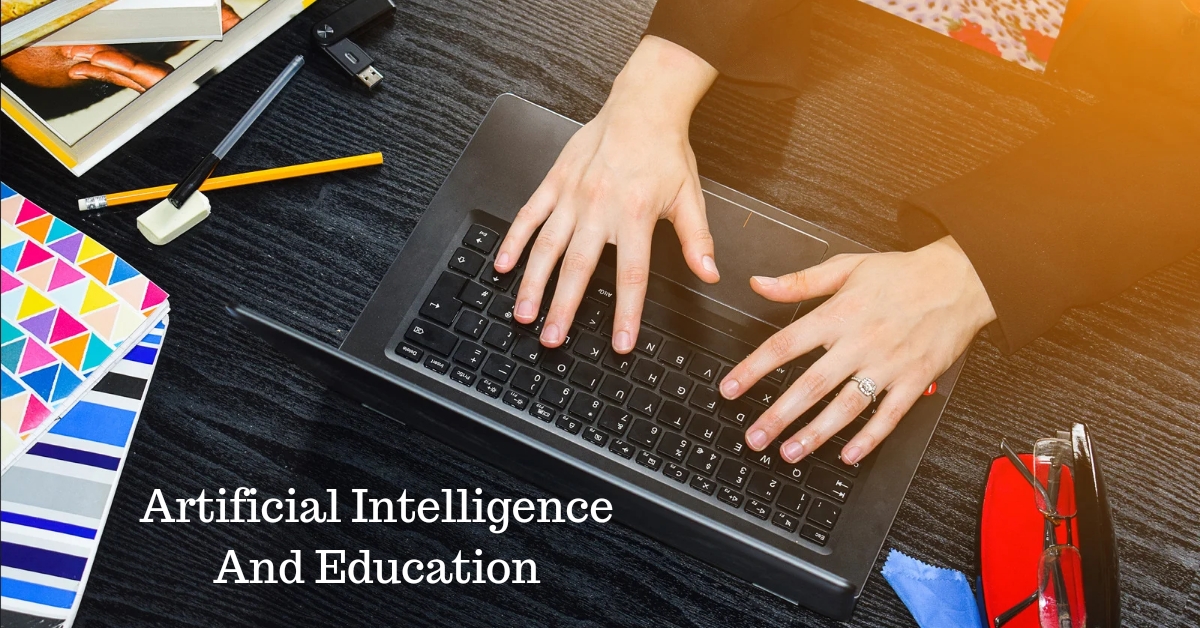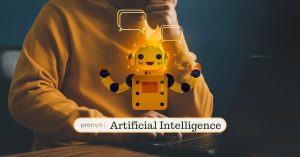Introduction:
The development of computer technologies and the speed of the internet help to create information about everything and from everywhere. Machines calculate and output more accurately.
The traditional problems (or goals) of AI research include reasoning, learning, planning, etc. In the 21st century, AI come within the sort of age. AI-powered technologies and the use of Artificial intelligence in education play an important role in technology.
What Is Artificial Intelligence (AI)?
Artificial intelligence (AI) is a branch of computer science concerned with developing machines that can think and act like humans. Intelligence exhibited by machines is in contrast to the natural intelligence exhibited by humans and animals.
Through this, the plan is to make a computer-controlled robot or software that can think like the human mind. It is constantly being prepared to perfect artificial intelligence. In his training, he is taught to experience the machine, adapt to new inputs, and be made to perform human-like tasks.
Related article: QLED vs UHD Technology
The Rise of Artificial Intelligence in Education:
AI, once confined to science fiction, is now a reality influencing various sectors, and education is no exception. Explore the roots of AI in education, from its inception to the current state of technological advancements.
Understanding Artificial Intelligence:
Delve into the fundamental concepts of AI and how they are applied in education. From machine learning algorithms to natural language processing, comprehend the technological backbone that powers AI-driven educational solutions.
Personalized Learning: Artificial Intelligence In Educational Revolution
One of the most significant contributions of AI to education is personalized learning. Uncover how AI tailors educational experiences to individual students, addressing their unique strengths, weaknesses, and learning styles.
AI in Classroom Assistance:
Examine how AI is reshaping the traditional roles of educators. Explore the emergence of smart classrooms, intelligent tutoring systems, and driven tools that provide real-time feedback and support for both students and teachers. AI-driven tools that provide real-time feedback and support for both students and teachers.
Challenges and Ethical Considerations:
As AI becomes more integrated into education, it brings forth challenges and ethical dilemmas. Discuss issues such as data privacy, algorithmic bias, and the potential impact on human-to-human interactions within educational settings.
Future Horizons of Artificial Intelligence in Education
Peer into the future and envision the possibilities that AI holds for education. From virtual classrooms to personalized learning pathways, explore the innovations that could redefine the educational experience in the years to come.
Real-World Examples of Artificial Intelligence In Education:
Highlight real-world success stories where AI is making a tangible difference in education. Explore applications like intelligent tutoring systems, adaptive learning platforms, and language learning apps that showcase the transformative power of AI.
The Collaborative Future: Humans and Artificial Intelligence In Education
Conclude by emphasizing the potential for a collaborative future where humans and AI work hand in hand to enhance education. Acknowledge the importance of responsible AI implementation and the role of educators in guiding this transformative journey.
Advantages of Artificial Intelligence (Artificial Intelligence):
Free communication:
Tools like Chatbots, voice assistants, and websites with intended interfaces provide easy and effective communication to users.
Increase efficiency: The speed and efficiency of computing devices increase with the advancement of artificial intelligence, providing users with quick and efficient services.
Continued growth:
Computer-edited models have provided scientists with incredible viability, improving machine capabilities and operational efficiency.
Zero Errors:
The use of artificial intelligence allows standardizing human errors and streamlines error remediation.
Increase productivity:
The use of artificial intelligence increases productivity in the pharmaceutical, manufacturing, and service sectors. All tests and decisions are made instantly.
Fields that use AI:
As we know there is no picture left in which technology is not used now let’s know about who uses artificial intelligence in which fields are given below.
Retail Shopping
Fashion
Security & Surveillance
Sports
Manufacturing & Production
Healthcare
Education
Navigation
Agriculture
Gaming (Artificial Intelligence in Gaming)
Chatbots
finance
Automotive Industry
Conclusion:
The integration of Artificial Intelligence in education represents a paradigm shift, promising a future where learning is personalized, adaptive, and enriched by technological innovation.
As we navigate this transformative era, embracing the collaborative potential of AI in education is key to unlocking its full benefits.
FAQs :
1. What is Artificial Intelligence (AI)?
Artificial intelligence is the reputation of human intelligence, in which computers attempt to demonstrate their intelligence using computer and mechanical technology.
2. In which field is artificial intelligence used?
Artificial intelligence is used in various fields, such as autonomous cars, solving higher-order thinking problems, interpreting financial messages, and many other fields.
3. What are the types of artificial intelligence?
There are various types of artificial intelligence, such as Machine Learning, Deep Learning, Neural Networks, Natural Language Processing, and Generative Networks.
4. How can artificial intelligence be used?
To use artificial intelligence, we need to use machine learning or missing learning techniques. You can build a model from a collection of data and train it, and a decision will be made based on the new data.
5. What are the commercial benefits of Artificial Intelligence?
The benefits of using artificial intelligence are many, such as reducing the cost of labor, making optimal decisions, using convenience, innovating in the field of technology, and helping humans.

